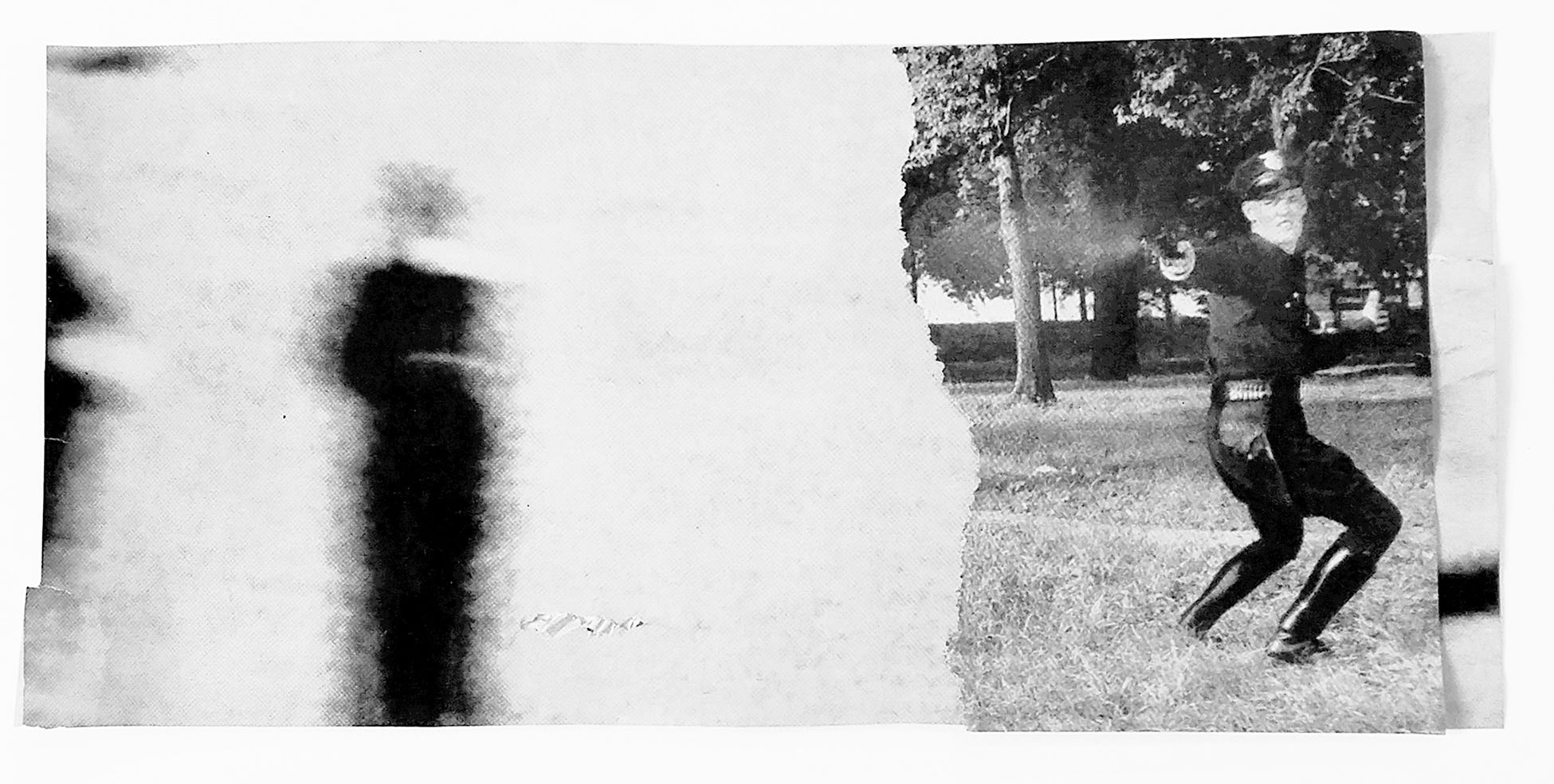Flash Fiction and the Collage Mind
POST #575 - Journal Entry: October 17, 2025 – 9:20 a.m.
Flash Fiction and the Collage Mind
Flash Fiction - I like a story like that, lean and immediate, already half-vanished before you can explain what it was about. What more do you need? Tension, anticipation, contrast, a pulse of action moving toward something that feels like a conclusion, even if it never arrives. Flash fiction thrives in that narrow space between movement and mystery. We sense where the story is going, but the pleasure lies in its velocity, its refusal to linger where a novel might build a scaffold. It is the lightning strike of narrative.
I came to it through collage. For many years I have been making collage poetry, assembling fragments, images, and found language into small constellations. The collage artist lives by juxtaposition, by the sudden spark that leaps between unrelated things. When I began translating my collage poetry practice into storytelling, flash fiction felt like familiar territory. Its brevity rewards intuition. Each piece must arrive whole, as if torn from a larger, invisible page.
Lately I have been taking my collage poems and letting them unfold into stories. The poem becomes the seed of a scene, a voice, or a fleeting circumstance. Where a collage poem suggests, the story enacts. Yet both remain guided more by rhythm and composition than by plot. I do not worry much about “the end.” Is there ever really an end to anything? Every short form - poem, parable, fable, or flash - is a fragment of a larger narrative still being written somewhere outside of the frame.
The novel might be the next horizon for me, but I tend to see it as a series of short forms orbiting a common center. A novel, after all, is simply a sequence of related flashes, an orchestra of fragments moving in concert. The only difference is endurance - the ability to sustain the thread over time.
The beauty of our moment is that we are free to imagine new literary architectures. Every known form began as an experiment, as a writer with a pen discovering a new way to see. The keyboard is our collage table now. Why blind ourselves by clinging to the known, traditional forms? Every form is provisional, every boundary porous. The flash, the fragment, the collage - they remind us that the story is always larger than the form that holds it.
I take lots of found things at this point and make up stories from them: an old photograph, a document that might once have lived in another era, another part of the world, a few random words stuck next to each other. Each fragment is an invitation. The photograph might contain an unspoken drama, a secret held in the tilt of a stranger’s head. A torn document might suggest a government that no longer exists, or a promise that was never kept. Even the smallest scraps of language have their own weather, their own scent of place and time.
Sometimes these fragments open entire worlds. I have found myself writing about people and places that never would have occurred to me if the material had not first appeared by chance. The collage does not come from imagination alone; it comes from encounter. It is as if the material world is continually whispering, “What is my story or what might it be?” When I follow that whisper, I cross into territories I did not know were waiting.
This kind of work frees the imagination from the burden of invention. Instead of deciding what to write, I listen for what the fragment wants to become. The act of composition becomes a dialogue, not a command. I no longer need to construct entire plots from logic or intention. The found element offers a seed, and the story grows of its own accord, often in directions I could not have planned and would never have envisioned. I work in a ‘one thing leads to the next thing’ mindset. Without the first thing I would never bother with the next thing.
In this way, collage becomes a philosophy of attentive imagination. It trains the mind to see the possible latent story inside the discarded, the forgotten, the overlooked. Every scrap of text, every torn photograph, every bureaucratic stamp carries the potential of a life renewed through art. To work in this manner is to collaborate with time itself. The past supplies the material, the present reshapes it, and the future listens.
Collage takes things out of their native context so that you can see them as they are in their own rawness, not clothed in the context it was hiding in. Then the opportunity to decontextualize presents itself and who knows where that might lead? That’s the adventure.




Loving how one form of art feeds the other in an organic way, Cecil!
Well. You know I love all of this. #flashfictionforever :)